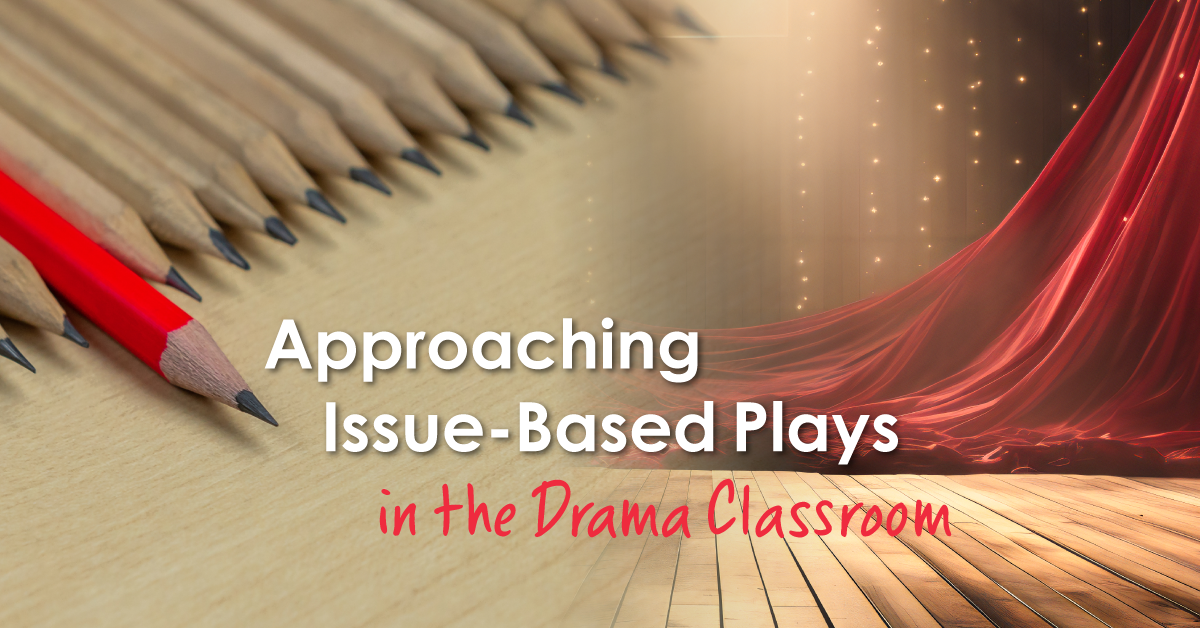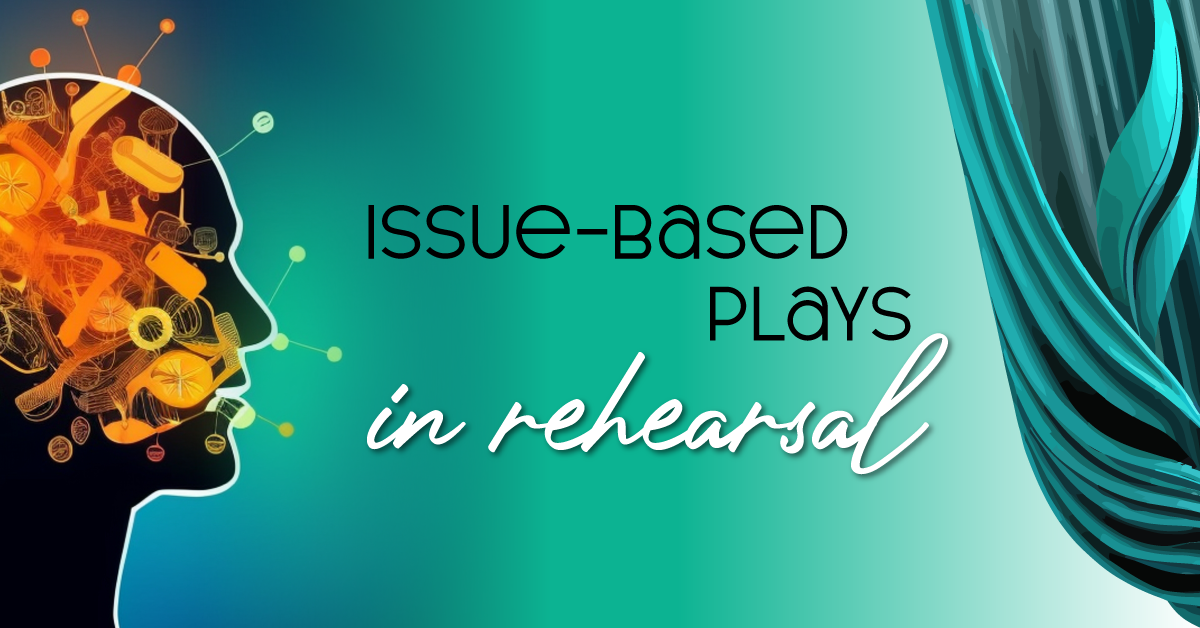Approaching Issue-Based Plays in the Drama Classroom
“Issue-based plays” explore a myriad of topics that are current and relevant for your students, such as bullying, mental health, body image, violence, sexuality, identity, and human rights. Issue plays are educational and entertaining at the same time, and they are so important for students to study. Students may see themselves or someone like them represented in an issue-based play. Conversely, studying issue-based plays can open students’ eyes and minds to issues that they themselves may not have experienced, but should be aware of. They can be a great way to open up lines of communication about important topics that need to be talked about.
Here are a few things to consider if you’re thinking about studying or performing an issue-based play in your drama classroom:
1. Be aware and make an educated choice.
Whether you are new to your school or a seasoned veteran, you need to stay abreast of issues that are prevalent in your particular school, district, or city. What is appropriate for one school may be a hard no for another school. Issue-based plays can bring out strong emotions during the process of studying, and you’ll need to decide whether you think this particular play would be a great area for exploration or if it could be triggering for some of your students. While it’s important to challenge your students, drama class must not cause harm.
2. Communication is key.
When selecting an issue play to study, you will need to ensure that your administration is aware of your choice of material and that they are supportive of that choice. Let them know what the play is, what topics it’s focused on, your goals for teaching it, and what educational standards will be met by studying it. Discuss how you’ll study the play: Will you read it aloud, will you watch a live or film version of it, and/or do you plan on performing it? Will you need to have the guidance office available in case a student needs that resource? If admin presents pushback, do you have an alternative play that you can present?
You may also want to let students’ parents/guardians know in advance that you’ll be studying an issue-based play. Creating a brief overview of the play, the subject matter, and your educational and theatrical approaches will be helpful for keeping parents informed about what their children are talking about in class. Be aware that parents may have more concerns about the material and the topic than the students do.
3. Prepare support materials and resources.
Oftentimes we are unaware of potential triggers until we are right in the moment. While we can’t anticipate every possible outcome of a situation, we can prepare ourselves with information and resources to support our students, or at least point them in the right direction. Compile a list of local and national resources (websites and phone numbers) that students can reach out to that are related to the issue. Compile pamphlets, articles, and book lists that you can give to your students. Arrange a visit with an expert to come and talk to your students about the topics they’re studying in the play. Reach out to school clubs, peer helpers, and guidance and let them know what your class is studying, in case students would like someone to talk to. Think about what topics or lessons your students might benefit from prior to studying the play, and put them in your schedule. End your classes with closure practices to help students leave any heavy or lingering feelings in the drama classroom. You don’t need to have all the answers, but your students will appreciate your efforts to support them.
Related Articles:
Social Issue Plays for High Schools / Middle Schools
Talking About Issues Through Theatre
Acting the Issue Play



